Cats lose hair for multiple reasons. Skin allergies may be to blame, or flea and tick infestation may be the reason for feline hair loss. Hypothyroidism and other hormonal conditions may cause hair loss in cats. Infections such as ringworm are common reasons for patchy bald spots in cats, as are stress and anxiety. Nutritional deficiencies are another factor in feline hair loss.
Here are six reasons why your cat may be losing hair.
1. Skin Allergies
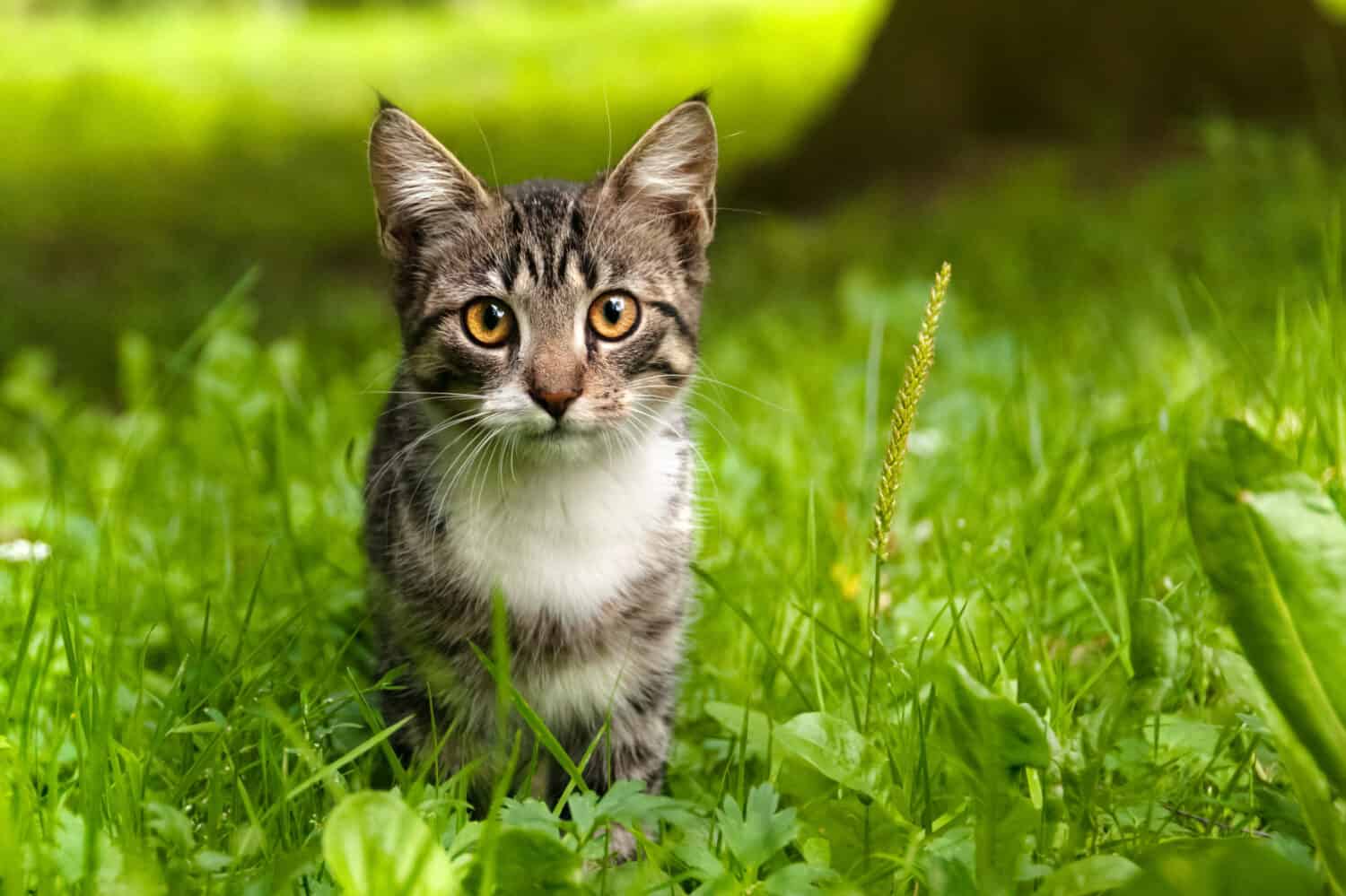
Cats can have many of the same allergies that humans can.
©Tinka Mach/Shutterstock.com
Just like humans, cats can experience skin allergies. Felines may be allergic to certain foods, fleas and ticks, or environmental factors such as pollen. It can be challenging to pinpoint the cause of your cat’s skin allergy.
Your veterinarian may recommend eliminating potential allergens to see if the cause can be determined. Some vets may have tests they can perform to detect certain types of feline allergies. Along with hair loss, feline skin allergies can cause discomfort, such as itching and burning.
2. Fleas and Ticks
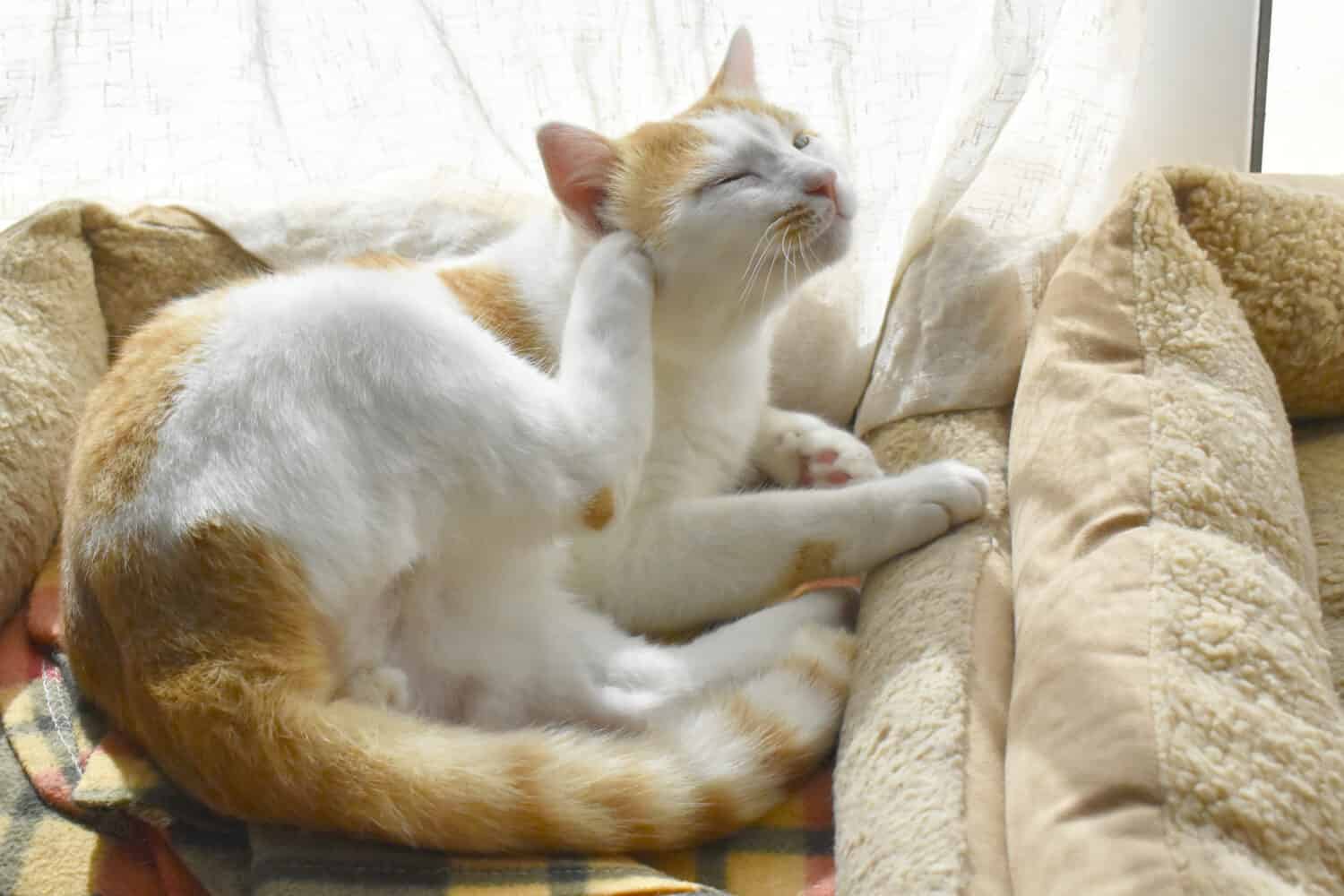
A single flea bite is enough to trigger an allergic reaction in sensitive cats.
©Maliflower73/Shutterstock.com
Speaking of allergies, some cats are extremely sensitive to fleas and ticks. Just one flea bite could cause hair loss, along with other uncomfortable symptoms. Cats with flea or tick allergies can experience severe itching, watery eyes, and even seemingly unrelated symptoms such as respiratory and digestive problems.
Whether or not your cat is allergic to fleas or ticks, get rid of these bloodsuckers as you notice them. Even without an allergy, cats, dogs, and people can suffer from itchy bites. Plus, ticks can transmit diseases such as Lyme disease and Rocky Mountain spotted fever. Left unchecked, fleas and ticks can multiply fast. Fleas can lay 25-40 eggs each day, while ticks can have litters numbering in the thousands.
3. Hormonal Imbalances
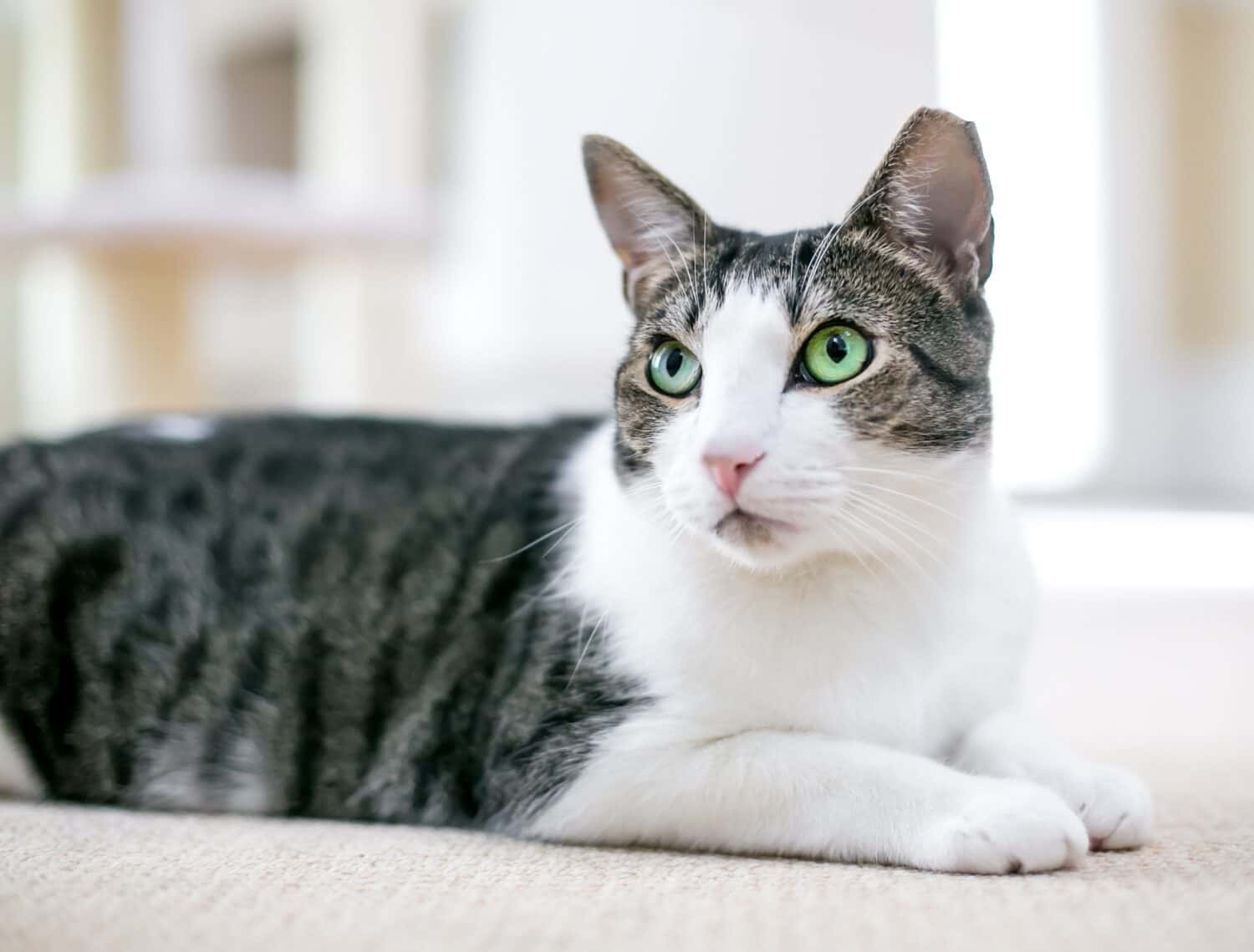
Hypothyroidism in cats may cause hair loss.
©Mary Swift/Shutterstock.com
Cats may have hormone imbalances, one of the most common being hypothyroidism. This is a condition in which the thyroid works more slowly than it should. Symptoms of this condition can vary, but one is hair loss. You may notice your cat’s hair is thinning overall, or there may be bald spots. This is because the decreased hormonal output from sluggish thyroid function affects hair follicles.
Luckily, hypothyroidism in cats — and people — can be corrected with professional medical treatment. If your cat is losing hair for any suspected reason, it’s wise to schedule a veterinarian appointment.
4. Fungal Infections
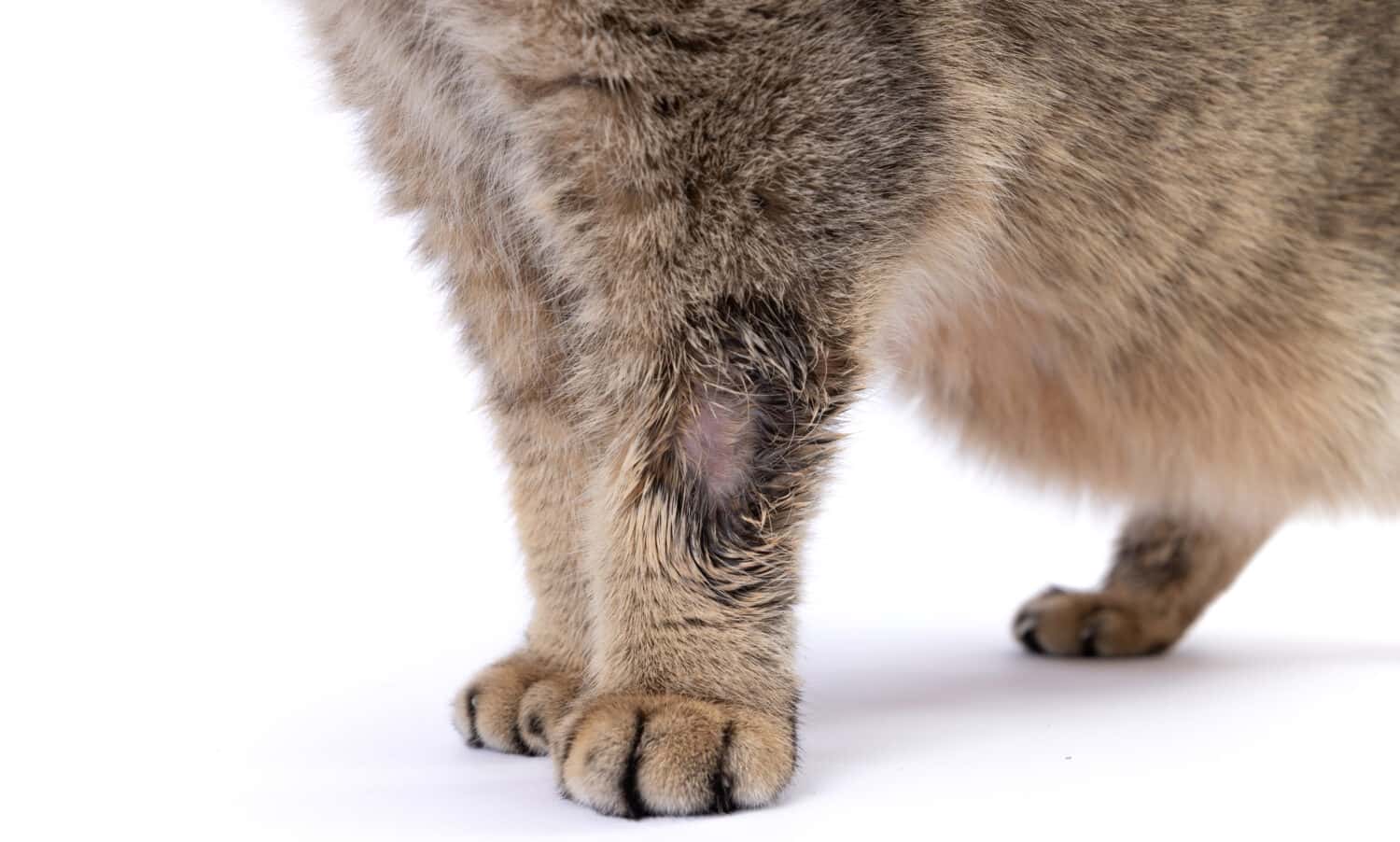
Ringworm is a common fungal infection that can cause bald spots.
©Nadya Bessonov/Shutterstock.com
A fungal infection may be to blame for your cat’s hair loss. One of the most common is ringworm, which can infect people and pets. Despite its name, ringworm isn’t actually a worm. It’s a dermatophyte fungus, which means it affects the skin.
The term “ringworm” derives from the round, red areas of inflammation that occur. Felines with ringworm may have hot spots, itching, burning, and bald patches. Veterinary treatment can eliminate the fungus, along with associated discomfort and hair loss. Over time, your cat’s fur should grow back.
5. Stress and Anxiety

A stressed cat may overgroom, causing bald patches.
©NZ3/Shutterstock.com
Stress and anxiety can be to blame for feline hair loss. There are different cat personalities, which means one cat may become stressed by something that another wouldn’t. Your cat’s demeanor depends on multiple factors, including breed and age. Environment also plays a significant role when it comes to your cat’s stress level.
Typical stressors for cats include moving to a new home. Transitioning from outdoors to indoors can also cause anxiety. Another common stressor is the introduction of a new dog or another cat to the household. Introduce your cat to dramatic changes as gradually as possible and expect your cat to take a while to acclimate. While hair loss due to stress-induced overgrooming is common, the behavior should resolve when the stressor disappears or the cat adjusts to the situation.
6. Nutritional Deficiencies
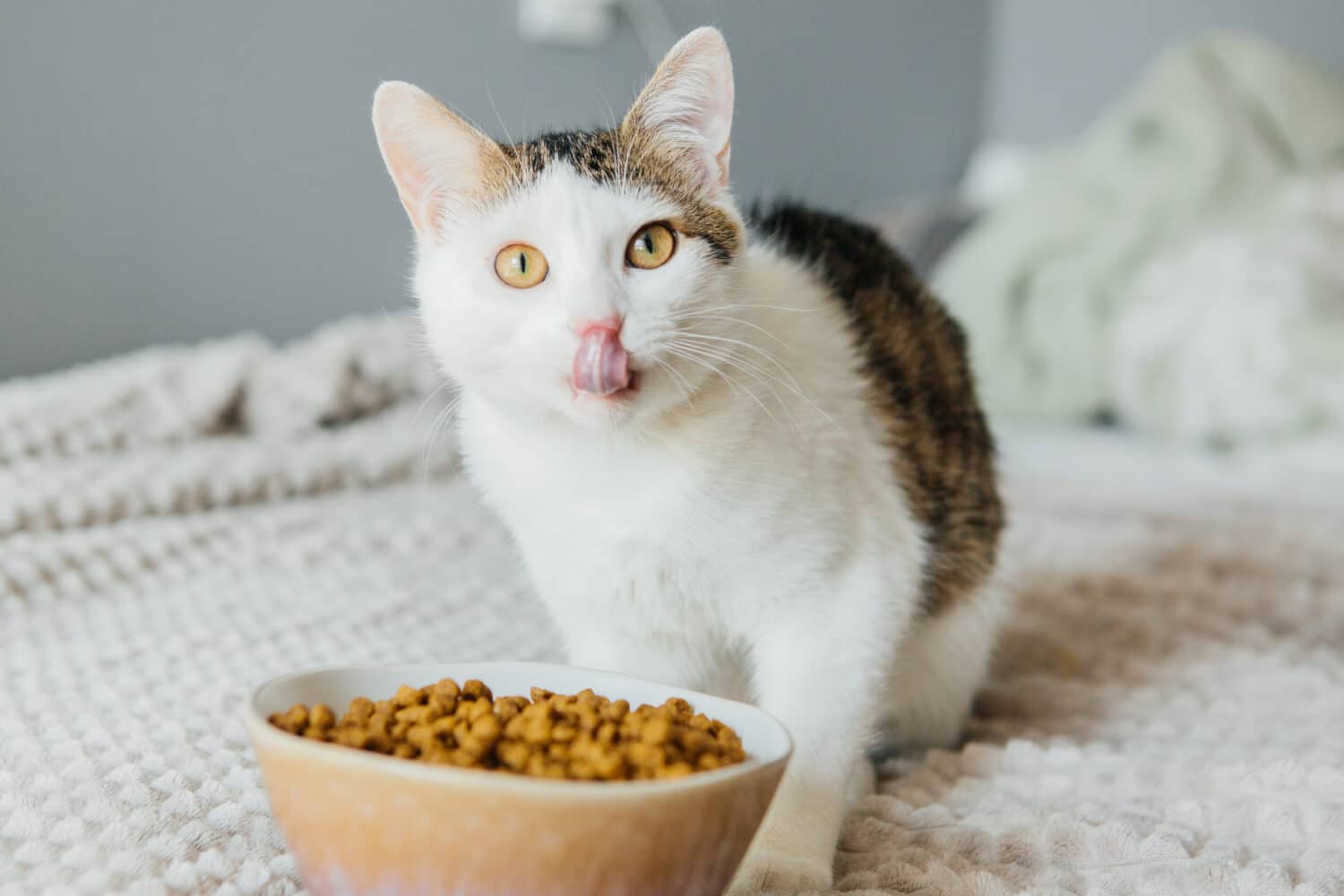
Improper nutrition is a leading factor in feline hair loss.
©AlexanderDubrovsky/Shutterstock.com
Cats have specialized nutritional needs that change as they age. For example, kittens need more nutrients than adult cats do. All cats need certain levels of nutrients to thrive, including protein, fats, vitamins, and minerals. If a nutritional deficiency is present, hair loss may be the result. In addition to a vet visit, a simple dietary adjustment may be all that’s needed to resolve the problem.
When choosing the right cat food, find a formula for your cat’s age. There are wet and dry cat food varieties for kittens, adults, and senior cats. From there, look for features that address your cat’s needs. For example, you might choose a cat food that encourages healthy skin and a shiny coat, or you might opt for an indoor cat food if your cat stays inside.
The photo featured at the top of this post is © iStock.com/FediushkinaElena
Thank you for reading! Have some feedback for us? Contact the AZ Animals editorial team.







